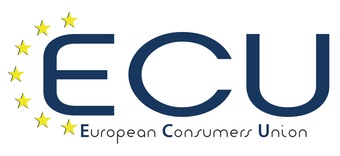Vzdelávacie programy pre nezamestnaných
Tlačová správa (Stará Ľubovňa, 01.09.2020)
Asociácia spotrebiteľkých subjektov Slovenska ukončila dvojročný projekt vzdelávania, ktorý vznikol ako spoločný program európskych spotrebiteľských organizácií z Grécka, Talianska, Českej republiky a Slovenska a reaguje na problémy nezamestnanosti mladých ľudí v krajinách Európskej únie. Štatistické údaje potvrdzujú, že k 31.01.2019 bolo na Slovensku evidovaných 41 204 nezamestnaných do 29 rokov, z nich jedna tretina mala len základné a nižšie stredné vzdelanie.
Inovačný program zväčšuje ponuku vzdelávania pre nezamestnaných do 29 rokov s nízkou úrovňou zručností alebo nízkou kvalifikáciou a výmenou skúsenosti podporuje rozvoj odbornosti vzdelávateľov.
Program spotrebiteľského vzdelávania začal výskumom vzdelávacích potrieb nezamestnaných a na tomto základe vytvoril prípadové štúdie z každodenného života spotrebiteľov. Ku prípadovým štúdiám bola vytvorená metodika s cieľom podporiť rozvoj spoločenských a občianskych kompetencií a rozvoj komunikácie v materinskom jazyku. Inovatívny program bol doplnený o inovatívne nástroje na meranie rozvoja kľúčových kompetencií.
Program spotrebiteľského vzdelávania bol overený na vzorke nezamestnaných do 29 rokov vo všetkých krajinách partnerov projektu. Závery z overovania potvrdzujú, že obsah a metodika vzdelávania podporujú záujem nezamestnaných ďalej sa vzdelávať a rozvíjať kľúčové kompetencie potrebné pre celoživotné vzdelávanie a uplatnenie na trhu práce.
Vzbudenie záujmu nezamestnaných o vzdelávanie naznačuje možnosti ako pomôcť nezamestnaným s nízkou úrovňou zručností alebo nízkou kvalifikáciou pri hľadaní uplatnenia v spoločnosti a na trhu práce. Súčasná podpora riešenia nezamestnanosti mladých ľudí zvýhodňuje prípravu nezamestnaných pre konkrétne pozície na trhu práce. V súčasnej vzdelanostne orientovanej ekonomike by sme očakávali, že štát podporuje aj programy ďalšieho vzdelávania nezamestnaných, aby si rozvíjali kľúčové kompetencie potrebné pre celoživotné vzdelávanie a využili ich pri hľadaní a uplatnení na trhu práce.
Božena Stašenková, koordinátorka projektu ERASMUS+
